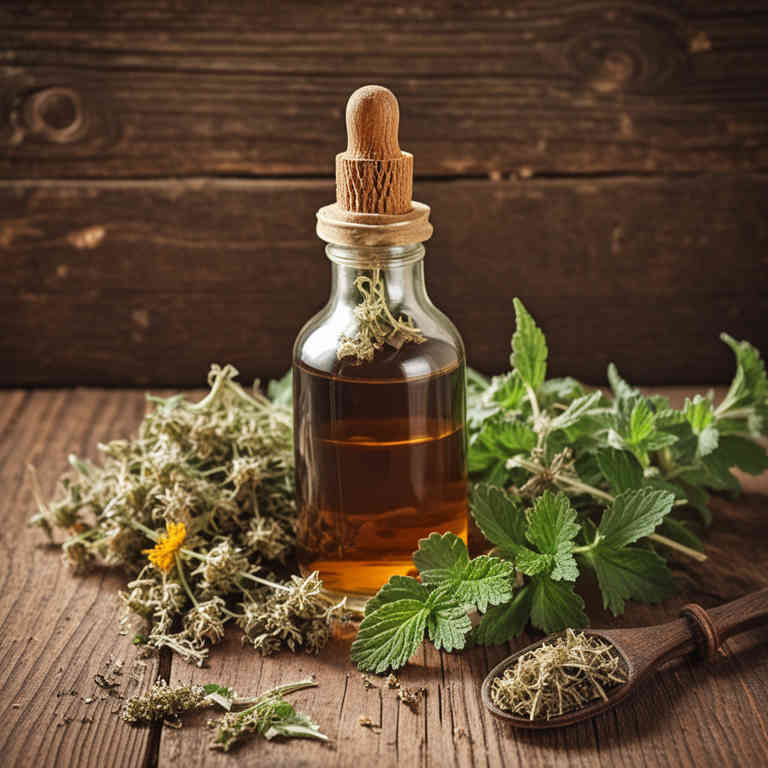Melissa officinalis tincture for medicinal use

Melissa officinalis tincture is a concentrated liquid extract made from the leaves of the lemon balm plant, which is known for its calming and soothing properties.
It is commonly used in herbalism to alleviate anxiety, promote relaxation, and improve sleep quality. This preparation is often taken orally in small doses, either diluted in water or combined with other herbal remedies. Its mild sedative effects make it a popular choice for managing stress and nervous tension.
Melissa officinalis tincture is also believed to support digestion and reduce restlessness when used as part of a holistic wellness routine.
Uses
Melissa officinalis tincture has been used to promote relaxation, reduce anxiety, and support digestive health for centuries.
Historically, it was revered in ancient Greek and Roman medicine, where it was used to treat nervous disorders and digestive issues. Traditional herbalists also utilized it to alleviate symptoms of stress and enhance mental clarity. In modern times, it is widely recognized for its calming effects and is often used as a natural remedy for stress-related conditions.
Today, it is commonly found in herbal supplements and aromatherapy products, reflecting its enduring legacy in both traditional and contemporary wellness practices.
Benefits
Melissa officinalis tincture has health benefits such as reducing anxiety, improving mood, and promoting relaxation.
It is commonly used to support mental well-being by calming the nervous system. The tincture contains compounds like flavonoids and rosmarinic acid, which may contribute to its calming effects. It is often used as a natural remedy for stress and insomnia.
Additionally, it may aid in digestion and enhance cognitive function due to its antioxidant properties.
Constituents
Melissa officinalis tincture active constituents include flavonoids, phenolic acids, volatile oils, and rosmarinic acid.
These compounds contribute to its calming and anti-inflammatory properties. The volatile oils, such as citral and citronellol, are responsible for its aromatic and soothing effects. Rosmarinic acid is a powerful antioxidant that helps neutralize free radicals in the body.
Flavonoids and phenolic acids support overall health by reducing oxidative stress and promoting cellular function.
Preparation
To make Melissa officinalis tincture, begin by selecting fresh or dried lemon balm leaves and washing them thoroughly.
Place the leaves in a glass jar and cover them completely with a high-proof alcohol such as vodka or ethanol. Seal the jar and store it in a cool, dark place, shaking it gently every few days for four to six weeks. After the steeping period, strain the liquid through a fine mesh strainer or cheesecloth to remove the plant material.
Finally, transfer the tincture to dark glass bottles and store it in a cool, dry place for future use.
Side Effects
Melissa officinalis tincture may lead to gastrointestinal discomfort, including nausea, vomiting, and diarrhea, particularly at higher doses.
It can also cause allergic reactions in individuals sensitive to the lemon balm plant, manifesting as skin rashes, itching, or respiratory symptoms. Long-term use may interfere with certain medications, such as sedatives or antidepressants, due to its mild sedative properties. In rare cases, it may contribute to drowsiness or dizziness, especially when combined with alcohol or other central nervous system depressants.
It is important to consult a healthcare professional before use, especially for pregnant or breastfeeding women and those with existing health conditions.